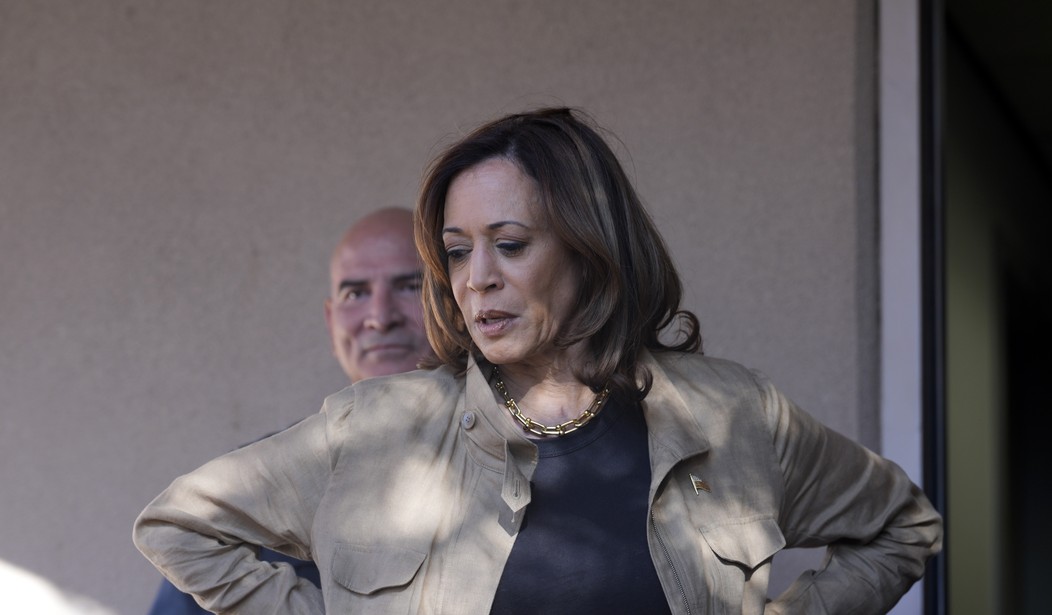That may understate the problem for Democrats. Kamala Harris has a bigger problem than Pennsylvania, and it has become apparent in the stall Democrats have seen in her momentum.
But Pennsylvania may have the biggest manifestation of the problem that Politico identifies, and identity lies at the heart of it -- although not in the context Harris prefers:
Biden’s local ties and cultural roots helped lift him to victory in 2020 here in Lackawanna County, the population hub of increasingly red northeastern Pennsylvania. In this most Catholic part of the swing state with the second-highest Catholic population, Biden ran ahead of Hillary Clinton’s 2016 pace, enabling his narrow, one percentage point statewide victory.
But now, as Democrats battle for the state with Kamala Harris as the nominee, their chances of winning in the region or performing well enough there to carry the state are looking considerably dicier. It’s not just the loss of Biden — an older, white, Catholic man with an affinity for the working class — from the top of the ticket that worries local Democrats. It’s the cultural dissonance with Harris, a Californian and woman of color who has spearheaded the party’s post-Dobbs abortion messaging. That profile makes her an awkward fit in a closely watched, economically hard-pressed working-class region that’s historically been a locus of anti-abortion activity.
That problem seems most acute in Pennsylvania, perhaps especially with Catholic voters. But the next paragraph from Charles F. McElwee describes a far broader problem, both for Harris and for Democrats in general:
Biden isn’t wildly popular here. But as a native son, Biden is viewed through a nostalgic lens. To many in this once staunchly Democratic region, he embodies an older iteration of the party that was closely tied to organized labor and focused on economic issues. Even though Biden moved to Delaware as a child, he remained in close contact with the city of his birth and was seen locally as a protective force against the national party’s progressive flank.
That is not just a Kamala Harris problem. That is an identity problem for the entire Democrat Party, one that has surfaced ever since Barack Obama won his re-election bid in 2012, when the veneer of centrism had worn off his progressive agenda. Obama picked Biden as his running mate in 2008 in part to retain that working-class identity for Democrats, and managed to win in 2012 in large part by painting Mitt Romney as a "vulture capitalist" while Biden demagogued by claiming Romney would put black voters "back in chains."
Biden chose Harris in 2020 as a way to help graft his old-school identity onto Harris' progressivism. However, it hasn't taken, largely because Harris is completely incompetent at communicating any sort of philosophy or agenda. Worse yet, Democrats abruptly pushed Biden to the sidelines and promoted Harris anyway, dispensing with any indication that they value the old-school working-class demos and priorities.
Harris likes to talk about her "middle class" upbringing, but she has little connection to the culture of middle- and working-class voters. She grew up in Academia, and became part of the Academia clique that has seized control of the Democrat Party. By pushing Biden aside and elevating Harris, Democrats have dropped the mask entirely. And that has big implications for them in the so-called Rust Belt and Midwest, and probably almost everywhere except the states on the Pacific and northern Atlantic coasts.
Democrats went from Main Street to the Ivory Tower, and in large part to Wall Street too.
Some of the impacts of this have yet to be fully felt, in part because the unpopularity of Donald Trump has masked it. But Trump isn't so unpopular as to be non-competitive, particularly in the one state that Harris and Democrats cannot afford to lose. Polling over the last two weeks since the debate shows a dead heat in PA, and only because Bloomberg kicked in an outlier Harris +5 poll earlier this week. RealClearPolling has Harris up only 0.4% at the moment, which looks even worse when one factors in what polling looked like on the same day in the last two cycles. Biden led by 5.3 points in the aggregate four years ago, and would only win PA by 1.2 points six weeks later. Hillary Clinton led by 2.4 points on this date eight years ago and then lost the state by 0.7 points.
And both Biden and Clinton had better claim to the old Democrat coalition than Harris does now. They also had better skills and a coherent policy agenda, too.
Now consider the other two Blue Wall states. Let's look at Harris' lead now in RCP's aggregation, and Trump's deficits in the previous two cycles:
- Wisconsin - Harris +1.0; 2020: Biden +6.2; 2016: Clinton +4.7
- Michigan - Harris +1.7; 2020: Biden +5.2; 2016: Clinton +4.7
Clearly, it would be better if Trump led all these states, but he's certainly within range. Polling hasn't gotten much better at picking up his support in these working-class states. Trump is outperforming the GOP's Senate challengers in all three states, but perhaps even more significantly, those Senate races are still pretty close too, even though two of them involve incumbent Democrats.
Kamala Harris has a real problem in Pennsylvania, and also in the region. But Democrats appear to have even worse problems, and those will grow even after this election as they abandon middle America for the Ivory Tower.








Join the conversation as a VIP Member